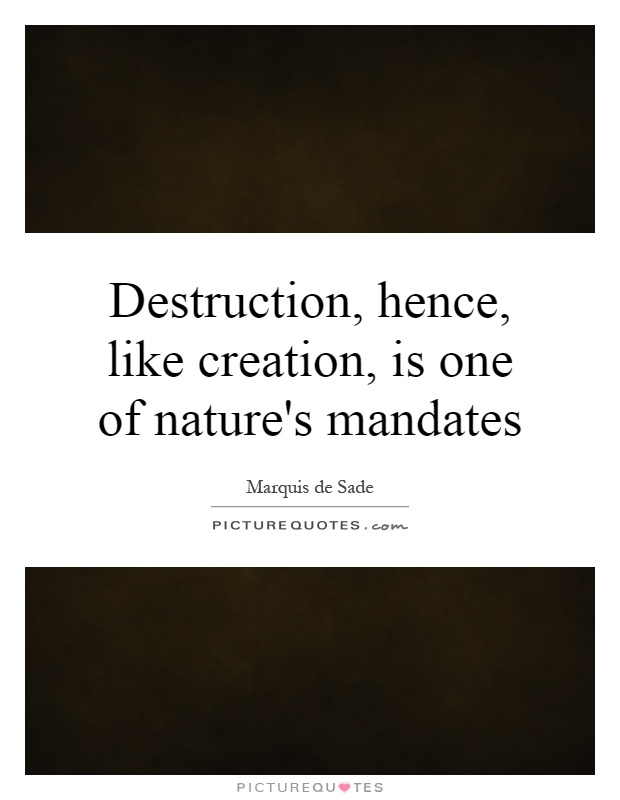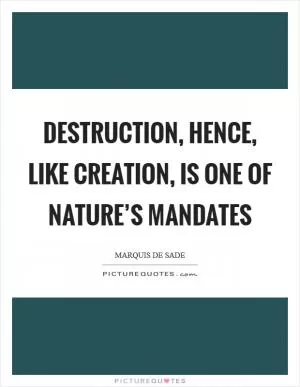Destruction, hence, like creation, is one of nature's mandates

Destruction, hence, like creation, is one of nature's mandates
The quote "Destruction, hence, like creation, is one of nature's mandates" holds a significant meaning in the context of the infamous Marquis de Sade. Known for his controversial and explicit writings that explored themes of violence, sexuality, and cruelty, de Sade's work often delved into the darker aspects of human nature. His writings were filled with graphic depictions of destruction, both physical and emotional, as well as the creation of new desires and pleasures.In de Sade's world, destruction was not only a natural part of life but also a necessary component of existence. He believed that in order to truly understand the depths of human nature, one must be willing to confront the destructive impulses that lie within us all. By exploring themes of violence, cruelty, and depravity, de Sade sought to challenge societal norms and push the boundaries of what was considered acceptable in literature.
For de Sade, destruction was not simply an act of violence or chaos, but a means of liberation and self-discovery. In his most famous work, "The 120 Days of Sodom," de Sade explores the darkest corners of human desire and the lengths to which individuals will go to satisfy their most primal urges. Through acts of destruction and debauchery, de Sade's characters seek to break free from the constraints of society and embrace their true selves, no matter how depraved or destructive those selves may be.












 Friendship Quotes
Friendship Quotes Love Quotes
Love Quotes Life Quotes
Life Quotes Funny Quotes
Funny Quotes Motivational Quotes
Motivational Quotes Inspirational Quotes
Inspirational Quotes